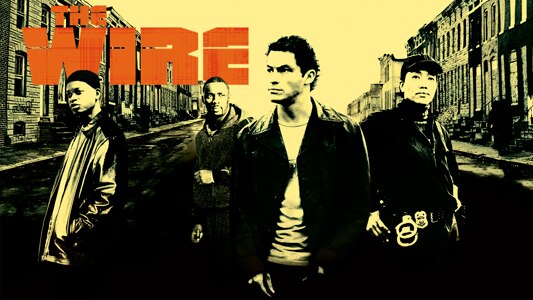
These TV shows can be a great way for you to make others smile. Many of these shows mimic real-life situations like a warm hug from someone you love or laughter with a friend over the sillyest things. Just by thinking about these shows, you can find a way to make yourself smile. When you are in the mood for a laugh, turn on one of these shows and forget about all your worries for about 22 minutes. These TV shows will make you smile.
Feel Good
You have a variety of choices if you are looking for a humorous and witty show. A semi-autobiographical comedy series about the perils and perks of modern sexuality and gender identity, Feel Good tells the story of recovering addict and comedian Mae Martin and her love affair with the comedian Charlotte Ritchie. Feel Good also has a host of guest stars like Liv Tyler and Lena Dunham.
This comedy series is perfect for anyone who wants to have a fun, light-hearted way to spend Saturday afternoons. You're sure to find something humorous in the characters. Famous comedians and actors play the main characters, while comedians and comedians also play the secondary roles. Feel Good is a light-hearted, mature comedy that's great for talking about with your children or family.

Blackadder Goes Forth
Blackadder Goes Forth is the fourth series of the popular BBC sitcom, Blackadder. It was written by Richard Curtis and Ben Elton and aired on BBC from 28 September to 2 November 1989. It starred Richard Curtis, Ben Elton, and Squizzy as the charming pranksters Blackadder & Squizzy. The series, despite its unusual premise was a huge success with viewers.
It stars the cast of the original series. This includes Miranda Richardson who played Queen in Blackadder II. RikMayall plays the mysterious Commander Flashheart. John Cleese portrays the charming, cocky blacksmith. Its clever humor and status as a classic television series has earned it a spot among the best. The series' famous final scene has been praised by critics as one of its best.
The Fresh Prince Of Bel-Air
Superbowl Sunday saw the premiere of Peacock’s first episode of The Fresh Prince of Bel-Air's reboot. The series follows Will who is a young basketball superstar and is forced to live in West Philadelphia with his aunt, uncle, and cousin. Peacock is promising to offer a contemporary take on Will's character. Will's good nature is as contagious as his temper, and the series will explore his struggle with his new identity as an African-American.
The theme song of The Fresh Prince of Bel-Air was composed by Will Smith and QDIII. It is catchy and upbeat. It has the same chord structure as Will's original song and is credited at Smith. The original three episodes of this song are the first. One version is over 2 minutes long and credited to Smith only. The other version was released in the Netherlands in 1992 at 3:23 and reached number 3.

The Six Feet Under
"The Six Feet Under", a delightful example of a show which will make you smile while also making you think, is a great example. This program explores the human condition. It also makes us question our choices. While it is funny, the show is also very thought-provoking. It is a brilliant reflection of the American way of life. It is one the few TV shows that can help us to think about the meaning and purpose of life.
This dark comedy/drama centers on a dysfunctional family that runs a funeral home. The thirteen episodes are suitable for mature audiences. It can be viewed in short, two-to-three-hour segments and over a 21-day span. Some episodes can be so long that you won't have time to view them all. But they are well worth it. You can catch at least three episodes per day if you really want to see them all.
FAQ
Does TV affect sales?
TV affects sales because it allows consumers to see what products are available.
Customers often compare prices before they buy something. They often think "I wonder if it's possible to afford that?" when they see an advertisement for a product.
What kind of advertising can a TV show?
Television is a communication medium where images are used for messages. It is the most widely viewed medium in the world. The annual value of the television industry exceeds $100 billion.
There are many kinds of advertisements that can be seen on TV.
-
Commercials (also known as "TV commercials"), which are usually 30 seconds or longer;
-
Programs/Series (also known as "programming") These are usually 20 minutes long, but some programs may be shorter than this.
Commercials are shown during commercial breaks which usually occur between every 30 minutes and every 60 minutes of programming. They are also shown at other times when there is no program being broadcast. This includes infomercials, pre- and post-shows, and public service announcements.
Programs are the core of any channel. Most channels have multiple series that air every week. Some networks show only one series per week. Others will run multiple series simultaneously. Some channels specialize only in airing news, movies and sports events.
Advertising on television has experienced significant change since its creation. In the 1950s, television was primarily used for entertainment purposes. People would watch shows like I Love Lucy, Father Knows Best, Gunsmoke, etc., and then go outside to play with their friends. As technology advanced, however, people began using television more often to get information about products and services. For example, if someone wanted to buy a new car, he could watch an automotive advertisement and learn what features were available in that particular model.
What does advertising do to influence consumer behavior?
Advertisements can influence consumer behavior in two ways:
-
Ads cause us to associate certain things with certain brands. For example, if we see a McDonald's commercial, we might think, "McDonald's burgers taste better than Burger King."
-
Advertisements show us how to behave. We will likely go to a store to purchase a new car if we are told by an advertisement.
Why should I pay attention to TV?
TV is an essential part of any business.
It's one of the biggest sources of revenue for many companies.
And if you're thinking about starting a business, you should learn everything you can about TV advertising.
This way, you'll know exactly what kinds of ads you should run, where you should spend your money, and how to market your products effectively.
TV is good for business.
Yes, TV is a good tool for business. Television helps businesses reach more clients.
Signs are put up all over the town, for example, when you're selling your house. You can also advertise in local newspapers such as the paper, the real property section, or the classifieds.
You can also advertise online via social media sites or websites like Facebook.
Television is a great way to communicate your message and avoid the hassle of putting up signs or writing articles.
Instead, you can relax and let someone else do all the work.
So you can achieve the best possible results without having to spend a lot on marketing campaigns.
Statistics
- In fact, 76% of people completely skip the commercials while watching their programs. (qualitylogoproducts.com)
- With OTT ad revenue set to increase from 45% to 60% over the next decade, AdTech pioneers and early adopters of OTT advertising will reap its benefits in the near future. (clearcode.cc)
- In fact, when the ad first launched, Dos Equis quickly became one of the fastest-growing beers, increasing its sales by over 22%. (qualitylogoproducts.com)
- Television is a great brand awareness tool - Almost every American has a television, with 83 percent of adults having two or more, and American households keep their televisions on for 8.1 hours each day on average. (marketingevolution.com)
- 93 percent of American adults listen to the radio over the course of the week. (marketingevolution.com)
External Links
How To
How can I make money on my TV Commercial?
There are many ways you can make money with your TV ad. Some of these include:
Advertising – This is any promotion paid for that encourages viewers watch your commercial.
Merchandising – After seeing your commercial, this refers to the sale of merchandise related your product.
Licensing – This refers a licensing of your commercial so that others businesses can use them in their own promotions.
Syndication: This refers to syndicating your advertisement to other networks.
Advertising revenue can pay production costs. It can also provide funding for future projects.
It's important to note that while advertising can generate significant income, it doesn't necessarily guarantee a return.
To make money with your TV commercials you need to first know what advertising options are available. Then, you should learn more about each option before choosing one.
Next, determine where your advertisement will be placed. Do you wish to advertise on popular shows like sitcoms and sports games? You might prefer to target younger people by placing your ad near children's TV shows.
Finally, you need to decide whether you will produce your commercial yourself or hire one from an agency. A professional will be able to help you write, direct and edit your commercial. Pre-made commercials can help you save valuable time and money.
After deciding how you want to go about creating your commercial, you should start looking into different options. Here are some considerations when choosing an advertising method.
Target Audience – This is the most popular way to advertise. You could advertise to children, teens, young adults or women over 50.
Finding the right audience is key to your commercial's success. It is not a good idea to spend money on people who aren’t interested in your product.
Location - When determining where to place your commercial, you should think about the number of people who are likely to see your ad. If your plan is to advertise at a sporting event or other public events, it might make sense to place your commercial right before the first whistle. That way, everyone attending the event will see your commercial.
But, if you need to reach people in areas other than your own, you may need to go elsewhere. For a wider audience, satellite dishes and cable television can be used to broadcast your commercial.
Production Costs- Most companies will spend between $5,000 to $10,000 per commercial airtime. Advertisers are charged a fee based upon the length of the spot to cover these costs.
A company might want to air 30 seconds of commercial radio time. It will usually charge $1,500. If they want to run for 60 seconds, they will be charged $2,500.
For a commercial you will need to budget anywhere from $3,000-$15,000. Additional costs include hiring a director, writer producer, editor, and actors.
Time frame – Another important consideration when choosing an advertising medium is how long it will take to finish. For example, if your goal is to sell products within a week, you won't be able to wait until after the Super Bowl to begin airing commercials. Choose a fast advertising method instead.
You will need to spend a lot time and effort to create a commercial that is effective for long-term exposure.
Cost Per Viewer - Finally, you should consider what it costs to view each person's commercial. This depends on the size of the audience and the number of views you receive.
An example is a commercial that attracts 10 million viewers. It will be more expensive to produce a commercial that receives only 1,000 views.
You will need to evaluate all these factors in order to determine which option is best for you. Once you've decided on a strategy, you can use the following tips to help you get started.